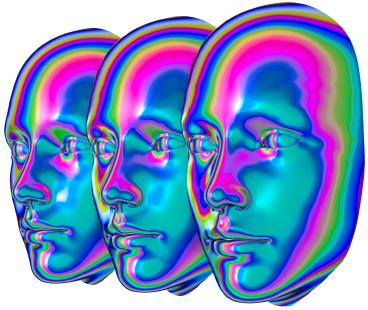- Mercados
- Trading
- Plataformas
- Herramientas y formación
Herramientas
- T4Trade
- Blog
- Login
- Registro
 ES
ES
Home > Psicología del trading > Instintos de trading
La psicología del trading nos habla de los diversos factores psicológicos que pueden incidir en las decisiones que tomamos en materia financiera. Y, ahondando un poco, el concepto afirma, además, que estos factores pueden resultar en conductas como pensamientos sesgados, decisiones irracionales o acciones impulsivas poco eficaces. La psicología del trading también destaca la importancia de la autoconciencia, la gestión eficaz del riesgo, la regulación de las emociones y una mentalidad equilibrada para aprender a sobrellevar el estrés inherente al trading y tomar decisiones racionales.
Los instintos de trading son un factor fundamental de la psicología del trading, ya que son aquellas corazonadas o intuiciones que tantas veces tienen los traders cuando llevan tiempo operando o tienen experiencia. Normalmente surgen gracias al aprendizaje y a la práctica, y para llegar a experimentarlos es preciso estar siempre informado sobre los eventos y noticias del mercado y los indicadores económicos importantes.
La capacidad de confiar en sus instintos de trading implica tener una gran autoconciencia. Debe saber distinguir entre las decisiones que toma basándose en datos racionales y fundamentados de las que toma dejándose llevar por sensaciones y emociones. Muchas veces, comprensiblemente, la línea que separa objetividad y subjetividad queda muy difuminada, así que es muy importante aprender a discernir una de otra para tomar decisiones que lleguen a buen puerto.
Hay tres fenómenos psicológicos que suelen influir en los instintos de trading. Veamos cuáles son.
El sesgo sensorial deriva de la idea de que nos formamos opiniones basándonos en información que podría estar sesgada. Nos pasamos el día recogiendo datos de múltiples fuentes de aquí y de allá, y es esto lo que nos permite operar día tras día.
Y también nos ayuda a aprender. Claro que no todo lo que nos llega tiene un sesgo, incluso si pensamos que así es. Suele pasar cuando nos exponemos a un solo punto de vista sobre un tema o evento en particular repetidamente. Si no tenemos nada con lo que contrarrestar este punto de vista, probablemente nos formemos una opinión basándonos en un solo lado de la historia, convirtiendo los "hechos" en un sesgo.

Este concepto se refiere al temor a lo desconocido. Es una acción en la que evitamos algo que no conocemos, poco familiar, algo que puede, o no, ocurrir. En el mundo del trading, este tipo de conducta puede derivar en una tolerancia al riesgo muy baja y, en consecuencia, en resultados financieros poco provechosos.
Hay muchos motivos por los que tratamos de evitar lo desconocido. Uno puede ser perder dinero. Y otro, menos conocido, es el contrario: ganar dinero. ¿Y por qué? Pues porque el trader teme perder sus ganancias, ya sea por la presión fiscal o por otras causas como fuertes fluctuaciones del mercado.

La anticipación se vuelve tangible cuando el sentimiento que provoca pasa a dominar al trader y este se enfoca en dicha sensación en lugar de centrarse en conseguir lo que anticipó al principio.
La sensación de anticipación, de expectación, puede ser casi adictiva, y puede consumirnos de tal manera que el trader pierde todo el sentido de conseguir lo que había anticipado. Además de todo esto, la anticipación no solo está influida por el análisis objetivo sino también por la psicología colectiva de los participantes del mercado.

Gracias por visitar T4Trade
Este sitio web no está dirigido a residentes en la Unión Europea, y queda fuera de los marcos regulatorios europeos y de la normativa MiFID II.
Haga clic a continuación si desea visitar T4Trade de todos modos
Gracias por visitar T4Trade
Este sitio web no está dirigido a residentes en el Reino Unido, y queda fuera de los marcos regulatorios europeos y de la normativa MiFID II, así como de las reglas, directrices y protecciones establecidas en el manual de la Financial Conduct Authority del Reino Unido.
Haga clic a continuación si desea visitar T4Trade de todos modos